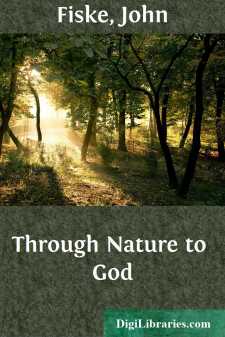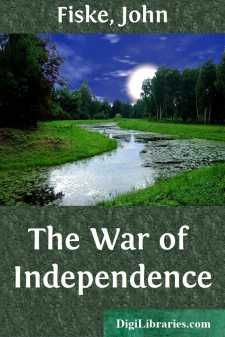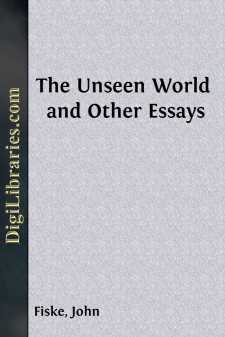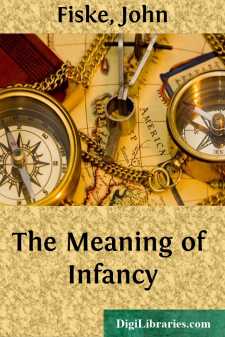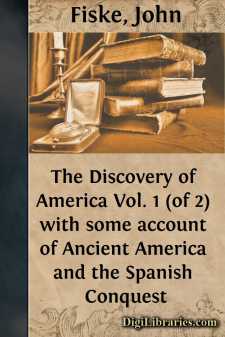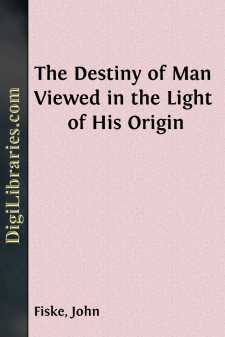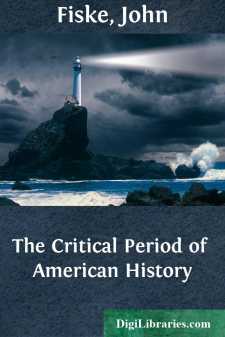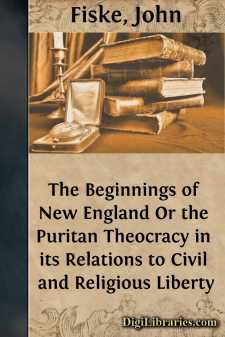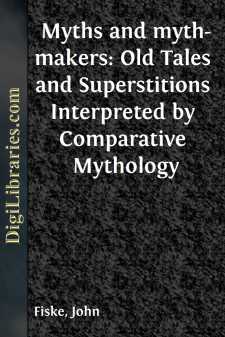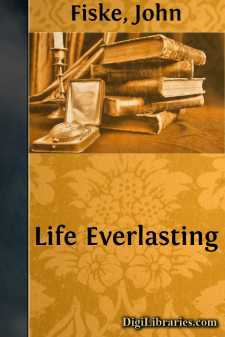Categories
- Antiques & Collectibles 13
- Architecture 36
- Art 48
- Bibles 22
- Biography & Autobiography 813
- Body, Mind & Spirit 142
- Business & Economics 28
- Children's Books 17
- Children's Fiction 14
- Computers 4
- Cooking 94
- Crafts & Hobbies 4
- Drama 346
- Education 46
- Family & Relationships 57
- Fiction 11829
- Games 19
- Gardening 17
- Health & Fitness 34
- History 1377
- House & Home 1
- Humor 147
- Juvenile Fiction 1873
- Juvenile Nonfiction 202
- Language Arts & Disciplines 88
- Law 16
- Literary Collections 686
- Literary Criticism 179
- Mathematics 13
- Medical 41
- Music 40
- Nature 179
- Non-Classifiable 1768
- Performing Arts 7
- Periodicals 1453
- Philosophy 64
- Photography 2
- Poetry 896
- Political Science 203
- Psychology 42
- Reference 154
- Religion 513
- Science 126
- Self-Help 84
- Social Science 81
- Sports & Recreation 34
- Study Aids 3
- Technology & Engineering 59
- Transportation 23
- Travel 463
- True Crime 29
John Fiske
John Fiske (1842-1901) was an American historian and philosopher, known for his works on American history and his support of the theory of evolution. He was a prominent advocate of Charles Darwin's ideas, blending them with his own views on social progress and history. Fiske's notable works include "The Critical Period of American History" and "The Discovery of America," which significantly influenced the popular understanding of American historical development.
Author's Books:
Sort by:
by:
John Fiske
PREFACE A single purpose runs throughout this little book, though different aspects of it are treated in the three several parts. The first part, "The Mystery of Evil," written soon after "The Idea of God," was designed to supply some considerations which for the sake of conciseness had been omitted from that book. Its close kinship with the second part, "The Cosmic Roots of Love...
more...
by:
John Fiske
BIOGRAPHICAL SKETCH. To relate, by way of leading up to this little book, all the previous achievements of its author would—without disrespect to the greater or the less—have somewhat the appearance of putting a very big cart in front of a pony. But no idea could be more mistaken than that which induces people to believe a small book the easiest to write. Easy reading is hard writing; and a...
more...
by:
John Fiske
PART FIRST. "What are you, where did you come from, and whither are you bound?"—the question which from Homer's days has been put to the wayfarer in strange lands—is likewise the all-absorbing question which man is ever asking of the universe of which he is himself so tiny yet so wondrous a part. From the earliest times the ultimate purpose of all scientific research has been to elicit...
more...
by:
John Fiske
I THE MEANING OF INFANCY What is the Meaning of Infancy? What is the meaning of the fact that man is born into the world more helpless than any other creature, and needs for a much longer season than any other living thing the tender care and wise counsel of his elders? It is one of the most familiar of facts that man alone among animals, exhibits a capacity for progress. That man is widely different...
more...
by:
John Fiske
PREFACE. The present work is the outcome of two lines of study pursued, with more or less interruption from other studies, for about thirty years. It will be observed that the book has two themes, as different in character as the themes for voice and piano in Schubert's "Frühlingsglaube," and yet so closely related that the one is needful for an adequate comprehension of the other. In...
more...
by:
John Fiske
I. Man’s Place in Nature, as affected by the Copernican Theory. When we study the Divine Comedy of Dante—that wonderful book wherein all the knowledge and speculation, all the sorrows and yearnings, of the far-off Middle Ages are enshrined in the glory of imperishable verse—we are brought face to face with a theory of the world and with ways of reasoning about the facts of nature which seem...
more...
by:
John Fiske
RESULTS OF YORKTOWN.Sympathy between British Whigs and the revolutionary party in America.The 20th of March, 1782, the day which witnessed the fall of Lord North's ministry, was a day of good omen for men of English race on both sides of the Atlantic. Within two years from this time, the treaty which established the independence of the United States was successfully negotiated at Paris; and at the...
more...
by:
John Fiske
CHAPTER I. THE ROMAN IDEA AND THE ENGLISH IDEA. It used to be the fashion of historians, looking superficially at the facts presented in chronicles and tables of dates, without analyzing and comparing vast groups of facts distributed through centuries, or even suspecting the need for such analysis and comparison, to assign the date 476 A.D. as the moment at which the Roman Empire came to an end. It was...
more...
by:
John Fiske
I. THE ORIGINS OF FOLK-LORE. FEW mediaeval heroes are so widely known as William Tell. His exploits have been celebrated by one of the greatest poets and one of the most popular musicians of modern times. They are doubtless familiar to many who have never heard of Stauffacher or Winkelried, who are quite ignorant of the prowess of Roland, and to whom Arthur and Lancelot, nay, even Charlemagne, are but...
more...
by:
John Fiske
THE INGERSOLL LECTURESHIP Extract from the will of Miss CarolineHaskell Ingersoll, who died inKeene, County of Cheshire,New Hampshire, Jan.26, 1893. First. In carrying out the wishes of my late beloved father, George Goldthwait Ingersoll, as declared by him in his last will and testament, I give and bequeath to Harvard University in Cambridge, Mass., where my late father was graduated, and which he...
more...


